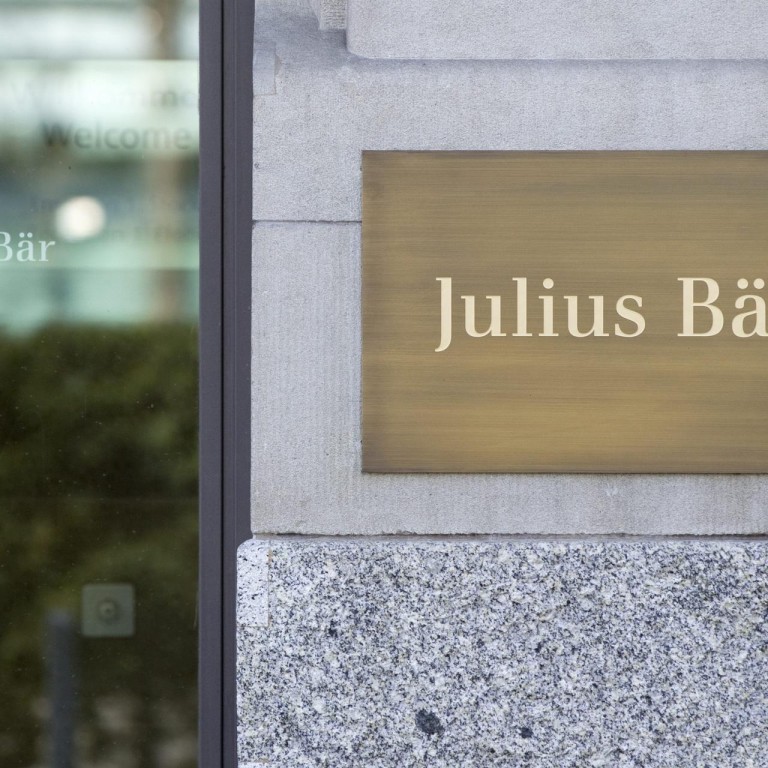
Deals open doors in Asia
Bank expects to focus more on Indonesia and mainland. Reports byJohn Cremer
A private bank's broader duties go beyond spotting opportunities for high-net-worth clients to creating them as well.
And, with two recent deals - the acquisition of Merrill Lynch's wealth management business outside the United States and a strategic partnership with the Bank of China - Swiss-based Julius Bär has taken decisive steps to offer new investment channels and a stronger service platform.
The Merrill deal has attracted more of the headlines. Subject to regulatory and shareholder approval, it involves US$84 billion in assets under management, as of June 30 this year, and about 2,200 employees, including 500-plus financial advisers.
In slightly more technical terms, the transaction concluded with Bank of America is a combination of legal entity acquisitions and business transfers. Integration will take place over the next two years and, assuming all goes according to plan, will add significant scale and lead to new co-operation on investment products and global equity research.
"It is a transformational deal for us, giving critical mass in growth markets," says Boris Collardi, CEO of Julius Bär Group. "There will be many new opportunities for cross-selling, and we will be able to run the business more efficiently on the cost side, so it is very good overall."
Three important criteria, he notes, were the key to reaching agreement.
Firstly, being a large transaction, it gives the buyer scope to substantially expand its asset and revenue base at one stroke. Secondly, the acquired assets are in the "right" markets for an organisation looking to gain exposure in faster-growing regions, such as Asia, the Middle East and Latin America. And thirdly, extra operating costs for the international business will be in dollars, euros and other currencies, relieving pressure on a corporate cost base now largely denominated in appreciating Swiss francs.
Creating the intended synergies, especially in Asia, is seen as a priority, but one that nobody is taking for granted.
"There is no miracle recipe, it just takes hard work," Collardi says. "Culture is the 'glue' which brings organisations together, so anything we change during the integration period will be best-practice-based, not about one culture winning. We are a bank with Swiss DNA, but it is always good to challenge your own establishment and see how things can be done better."
One early move has been to look at new structured product offerings on a Julius Bär platform. And, while the detail and complexity of the transaction rules out any short cuts, there is an understandable urgency to clear regulatory hurdles as soon as possible.
"It is best to be on the prudent side, so we have given ourselves two years," Collardi says. "But in the interests of clients, we are hoping to have regulatory approval for the business transfer in Asia by the middle of next year."
With Hong Kong and Taiwan regarded as mature and predictable markets, in terms of development, the bank expects to focus more on Indonesia and the mainland. The former is on track to become an economic powerhouse. The latter is seeing a fast-rising level of sophistication in financial services and investment needs. Mainland clients, unimpressed by stock market performance, are looking for international diversification, while overseas investors are keen to tap into the world's biggest growth story.
Julius Baer's strategic tie-up with the Bank of China recognises this. In essence, the agreement is to cross-refer clients and undertake joint marketing activities. Beyond that, there is clearly potential to collaborate more closely in areas such as product distribution, market research, and even arranging investment conferences.
"For private banking, you need several different licences to enter the mainland market, so this partnership is the best way for us to have a distribution network and possibly develop new renminbi products together," Collardi says.
It also works for the Bank of China, he adds. They are facing a lot of competition locally, with "everyone" now wanting to do private banking in China. The agreement, therefore, offers a way to differentiate and learn about succession planning, diversification, and principles of good wealth management
"We realise that getting Asia right is going to take a lot of effort," Collardi says. "But it is essential for anyone who wants to achieve growth in the next few years."
